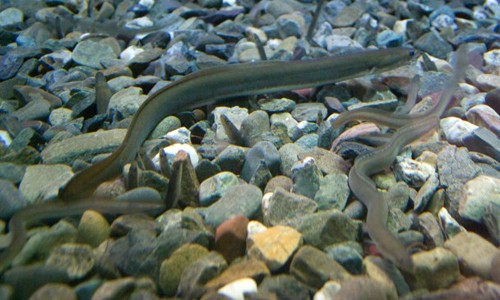MAINE

A federal grand jury indicted William Sheldon, 71, of Woolwich, Maine, and Timothy Lewis, 46, of Phippsburg, Maine, for illegally trafficking juvenile American eels, also known as “elvers” or “glass eels.”
A seven-count indictment was returned on March 1, charging Sheldon with conspiracy to smuggle elvers and violate the Lacey Act.
A two-count indictment was returned on March 29, charging Lewis with conspiracy to traffic elvers and violate the Lacey Act.
A two-count indictment was returned on March 29, charging Lewis with conspiracy to traffic elvers and violate the Lacey Act.
These indictments were the result of “Operation Broken Glass,” a multi-jurisdiction U.S. Fish and Wildlife Service (USFWS) investigation into the illegal trafficking of American eels. To date, the investigation has resulted in these two indictments, as well as guilty pleas for eleven individuals in Maine, Virginia and South Carolina. These eleven defendants combined have admitted to illegally trafficking more than $2.75 million worth of elvers.
To date, the investigation has resulted in these two indictments, as well as guilty pleas for eleven individuals in Maine, Virginia and South Carolina. These eleven defendants combined have admitted to illegally trafficking more than $2.75 million worth of elvers.
Eels are highly valued in east Asia for human consumption. Historically, Japanese and European eels were harvested to meet this demand; however, overfishing has led to a decline in the population of these eels. As a result, harvesters have turned to the American eel to fill the void resulting from the decreased number of Japanese and European eels.
Historically, Japanese and European eels were harvested to meet this demand; however, overfishing has led to a decline in the population of these eels. As a result, harvesters have turned to the American eel to fill the void resulting from the decreased number of Japanese and European eels, according to authorities.
American eels spawn in the Sargasso Sea, an area of the North Atlantic Ocean bounded on all sides by ocean currents.
They then travel as larvae from the Sargasso to the coastal waters of the eastern U.S., where they enter a juvenile or elver stage, swim upriver and grow to adulthood in fresh water.
Elvers are exported for aquaculture in east Asia, where they are raised to adult size and sold for food. Harvesters and exporters of American eels in the U.S. can sell elvers to east Asia for more than $2000 per pound, according to officials.
Because of the threat of overfishing, elver harvesting is prohibited in the U.S. in all but two states: Maine and South Carolina. Maine and South Carolina heavily regulate elver fisheries, requiring that individuals be licensed and report all quantities of harvested eels to state authorities.
The offense in this case is a felony under the Lacey Act, each carrying a maximum penalty of five years’ incarceration, a fine of up to $250,000.
The defendants are presumed innocent unless proven guilty.

